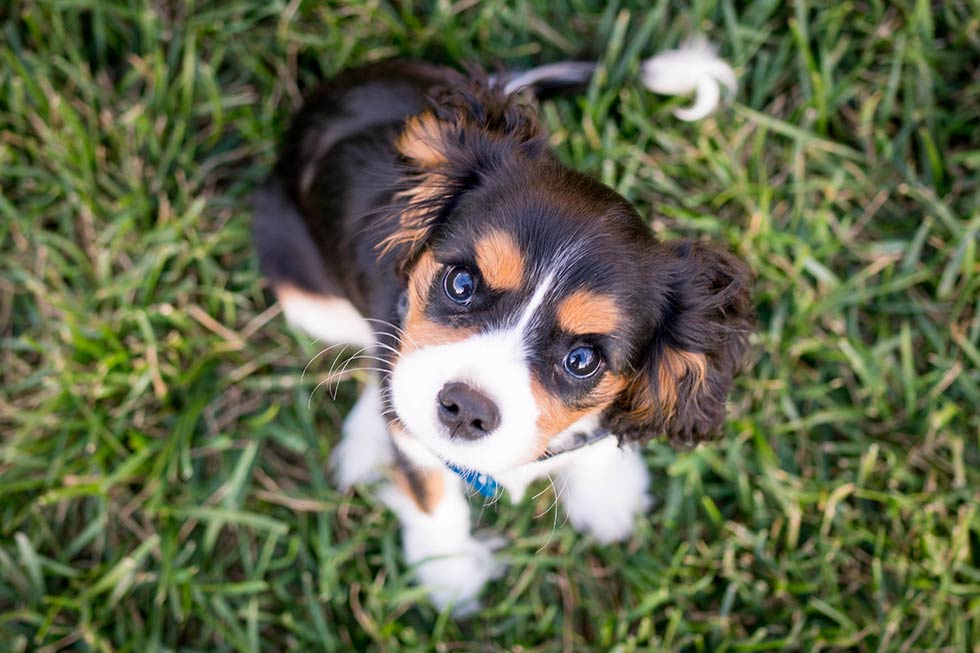What Milestones Should I Look for in my New Puppy?
andreas strauss
November 14, 2019
Wondering what milestones your new pup will make during the first 18months? Pet Insurance Australia takes a look at puppy development with some top tips to keep your pup, healthy and happy.
Inviting a new puppy into your home can be one of the most exciting and rewarding experiences in life. Hearing the pitter-patter of paws through the home is an absolute delight. With Christmas fast approaching, many pet lovers will now be getting ready to embrace this wonderful journey. But what about your new pups’ development?
Newborn Puppies
A newborn puppy will 100% rely on their mother for care. Puppies are born with both their ears and eyes shut and also unable to walk. At this age they will roll around, pushing with their legs to gain strength and making grunting/squeaking sounds. At this age their brains are not yet fully developed.
Two-Seven Weeks Old
During this stage your puppy will begin to open their eyes and ears. They will have also built-up enough strength from rolling and crawling, paddling and pushing, to be able to support their own body weight with their wee legs. This is the age many pups also find their voice and begin to experiment with barking, compared to just squeaking! They will also start to develop their milk teeth – 28 to be exact! At around six-weeks of age your puppy will also start to eat firm foods and will normally be fed three times per day.
Eight – 10 Weeks Old
This is normally the most anticipated time for a pet parent – when you get to take your puppy home! This is when most pups will begin toilet training and basic training (like sit, recall, and stay). It’s really important to check that your puppy is microchipped, vaccinated and wormed. Check with the breeder and ensure you have all the needed documentation.
Your puppy should already be booked into a puppy-preschool to help with safe socialisation and basic training with loads of other puppies around a similar age. You also need to ensure you feed your puppy the right food for their age – and the same food as the breeder or shelter. If you want to change foods, it’s advised to do this very slowly, as not to upset your puppy sensitive digestive tract.
It’s also a great age to go and meet the vet for a health check. Your vet can ensure your puppy is healthy and also give some wonderful advice on healthcare. Ensuring your pup has as many ‘positive’ encounters with your lovely local vet will ensure they do not develop a fear.
Your puppy will now be in full blown teething mode, with many of their milk teeth being replaced with 42 adult choppers (for more advice on puppy-teething check out our blog How to Help a Teething Puppy)
Four-Six Months
Your puppy will now be fully vaccinated and ready to see the world. At this age they are much more interested in training and should be signed-up to a basic obedience training course with other dogs. Training is the perfect way to strengthen your already amazing bond and help you both speak the same language. PLUS: It keeps your pet safe, easy to handle and well mannered.
Most pups will now go from three to two feeds per day. This is also the perfect age to book in for de-sexing. Most pup’s growth rate will also begin to slow.
12-18 Months
Your pup is now an adult dog. This is the age that you need to consider switching foods, speak with your vet on the best foods for an adult dog. Now is also a great time to check toys and throw out any old worn puppy toys that are too small. Your dog may also need a new leash, bigger bed and collar. With all of those new teeth, considering a good dental regime or utilizing dental chews that will help keep your dog’s teeth clean and healthy. Your dog will also be nearly due for their one-year booster vaccinations.

8 Comment